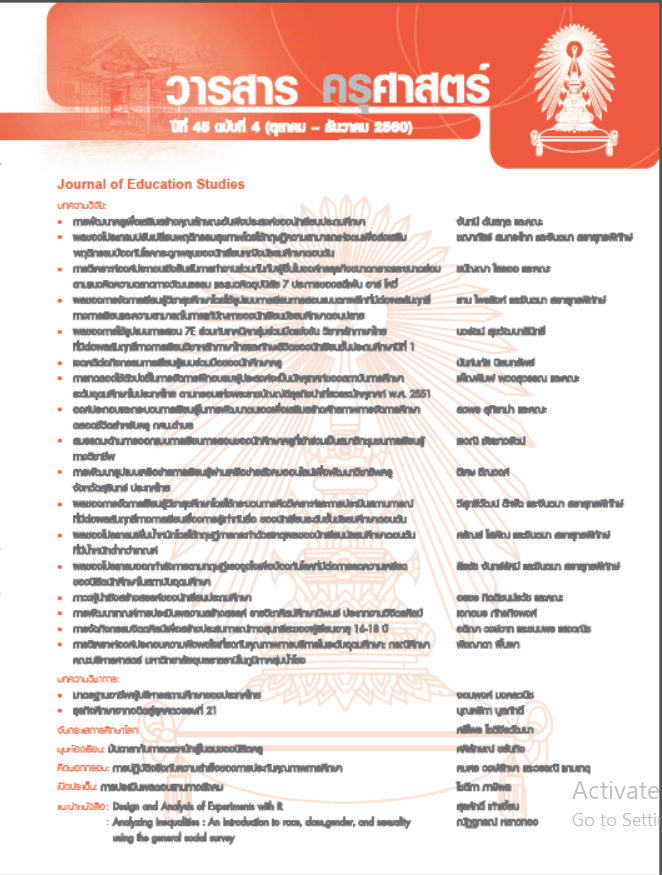Effects of Health Behavior Change Program Using Self-Efficacy Theory to Promote Osteoporosis Prevention Behaviors of Female Lower Secondary School Students
Abstract
The purposes of this study were to study the effects of health behavior change program using self-efficacy theory to promote osteoporosis prevention behaviors of female lower secondary school students. The sample was 50 female lower secondary school students of Chulalongkorn University Demonstration Secondary School with behavior exercise less than three times a week. Samples were divided into 2 groups with 25 students in the experimental group received the health behavior change program using self-efficacy theory for 8 weeks, 3 days a week, 1 hour a day and 25 students in the control group not received the health behavior change program respectively. The research instrument composed of the health behavior change program using self-efficacy theory and Then data were analyzed to compare means, standard deviations using t-test.
The research findings were as follows: 1) The mean score of the osteoporosis prevention behaviors in the area of Knowledge, attitude, practice of the experimental group students after received the health behavior change program were significantly higher than before at .05 levels. 2) The mean score of the osteoporosis prevention behaviors in the area of Knowledge, attitude, practice of the experimental group students after received the health behavior change program were significantly higher than the control group at the .05 levels.




